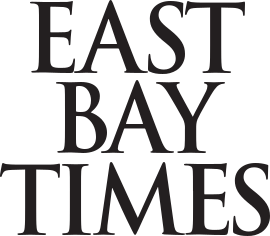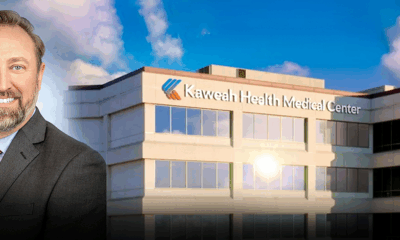Lifestyle
Oakland Nonprofit Offers Drug Testing Amid Rising Overdose Crisis

A nonprofit organization based in Oakland is providing a critical service to drug users by offering free drug testing to identify harmful substances in street drugs. This initiative comes at a time when California faces a significant rise in overdose deaths linked to the increasing presence of potent synthetic drugs like fentanyl.
On a recent Thursday, staff from the HIV Education and Prevention Project of Alameda County offered passers-by on Berkeley’s University Avenue the opportunity to have their drugs analyzed. Naila Vitatoe, a representative of the organization, explained the process to a middle-aged man who expressed interest in having his drugs tested. The nonprofit’s program allows individuals to submit small samples of their drugs for analysis using infrared spectroscopy, which can reveal the presence of dangerous substances.
The operation aims to empower users with knowledge about their drugs, enhancing safety and reducing the risk of overdose. Vitatoe and her colleagues provide users with detailed information about the chemical composition of their drugs, including the presence of substances like fentanyl that could pose serious health risks.
Drug checking is increasingly seen as a valuable public health strategy in California, particularly as the state grapples with a surge in overdose fatalities. According to research, users who are informed about the contents of their drugs are more likely to make safer choices, potentially preventing further tragedies. Professor Daniel Ciccarone from the UCSF School of Medicine emphasized the importance of this initiative, stating, “Knowledge is power.”
The dynamics of the drug supply are constantly shifting, driven by the actions of traffickers who may introduce synthetic additives and other harmful substances into the market. For instance, a tranquilizer known as xylazine has been increasingly found mixed with other drugs, heightening the risks for users. Ciccarone highlighted the significance of drug checking, noting that it can help users identify dangerous substances in their drugs, which may lead them to reconsider their choices.
In the absence of a national system for monitoring drug supply changes, programs like the one in Oakland are essential. The organization routinely sends samples to a National Institute of Standards and Technology lab in Maryland for confirmation of their findings, contributing to a broader understanding of the evolving drug landscape.
The HIV Education and Prevention Project of Alameda County launched its drug checking program in 2023. Similar initiatives have emerged in cities like San Francisco and Los Angeles. In 2024, California Governor Gavin Newsom signed legislation protecting workers involved in drug checking programs from arrest, a move that has sparked debate among law enforcement groups.
Executive Director Braunz Courtney expressed his vision for the program, stating, “Our job is to normalize this and standardize it, so that it just becomes a normal thing in the next five years.” Courtney has long advocated for harm reduction as a necessary approach to addressing the ongoing overdose crisis. His organization has previously established a syringe exchange and distributed naloxone, a medication that reverses opioid overdoses.
Despite historical opposition to harm reduction strategies, the drug checking program has been embraced in Oakland without significant pushback from law enforcement. On the day of testing, a man handed a small shard of methamphetamine to technician Enzo Dominguez. Utilizing a Fourier-transform infrared spectrometer, Dominguez analyzed the sample and confirmed its purity, reassuring the user that there were no unexpected dangers.
The nonprofit’s staff have encountered alarming findings during their testing. For example, they recently identified a counterfeit Xanax pill containing an unapproved benzodiazepine that contributed to a wave of overdoses in San Francisco. In other cases, they have detected potent fentanyl in what was thought to be less potent heroin, alerting users to the increased risk.
Research supports the notion that drug checking is beneficial for public health. A 2021 meta-analysis of 90 drug checking programs worldwide indicated that users tend to adopt safer behaviors when informed about the contents of their drugs. For instance, a study conducted at a supervised injection site in Vancouver showed that approximately one-third of users planned to reduce their dosage after testing revealed the presence of fentanyl.
Despite some skepticism regarding the effectiveness of drug checking in a largely fentanyl-laden environment, experts like Ciccarone argue against the idea that fentanyl is ubiquitous in all drugs. The technicians involved in drug checking agree with this perspective, affirming that their results show not all substances contain fentanyl.
As the opioid crisis continues to claim lives, initiatives like the one in Oakland are becoming vital resources for drug users seeking safety. The ongoing efforts of organizations dedicated to harm reduction reflect a growing recognition of the need for informed, compassionate approaches to drug use and public health.
-

 Technology4 months ago
Technology4 months agoDiscover the Top 10 Calorie Counting Apps of 2025
-

 Health2 months ago
Health2 months agoBella Hadid Shares Health Update After Treatment for Lyme Disease
-

 Health3 months ago
Health3 months agoErin Bates Shares Recovery Update Following Sepsis Complications
-

 Technology3 weeks ago
Technology3 weeks agoDiscover 2025’s Top GPUs for Exceptional 4K Gaming Performance
-

 Technology2 months ago
Technology2 months agoElectric Moto Influencer Surronster Arrested in Tijuana
-

 Technology4 months ago
Technology4 months agoDiscover How to Reverse Image Search Using ChatGPT Effortlessly
-

 Technology4 months ago
Technology4 months agoMeta Initiates $60B AI Data Center Expansion, Starting in Ohio
-

 Technology4 months ago
Technology4 months agoRecovering a Suspended TikTok Account: A Step-by-Step Guide
-

 Health4 months ago
Health4 months agoTested: Rab Firewall Mountain Jacket Survives Harsh Conditions
-

 Lifestyle4 months ago
Lifestyle4 months agoBelton Family Reunites After Daughter Survives Hill Country Floods
-

 Technology3 months ago
Technology3 months agoUncovering the Top Five Most Challenging Motorcycles to Ride
-

 Technology4 weeks ago
Technology4 weeks agoDiscover the Best Wireless Earbuds for Every Lifestyle




















